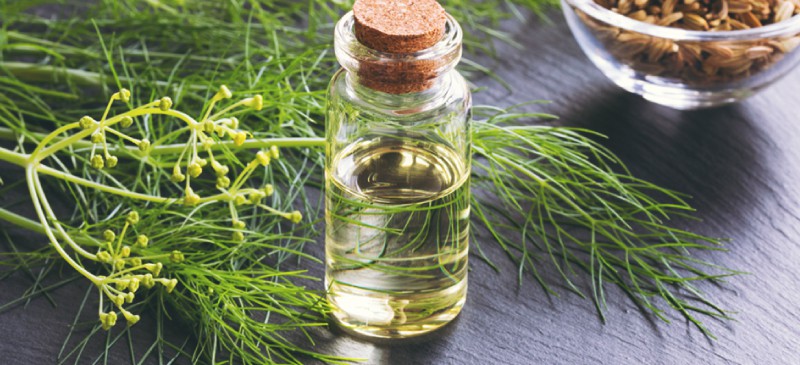This Dr. Axe content is medically reviewed or fact checked to ensure factually accurate information.
With strict editorial sourcing guidelines, we only link to academic research institutions, reputable media sites and, when research is available, medically peer-reviewed studies. Note that the numbers in parentheses (1, 2, etc.) are clickable links to these studies.
The information in our articles is NOT intended to replace a one-on-one relationship with a qualified health care professional and is not intended as medical advice.
This article is based on scientific evidence, written by experts and fact checked by our trained editorial staff. Note that the numbers in parentheses (1, 2, etc.) are clickable links to medically peer-reviewed studies.
Our team includes licensed nutritionists and dietitians, certified health education specialists, as well as certified strength and conditioning specialists, personal trainers and corrective exercise specialists. Our team aims to be not only thorough with its research, but also objective and unbiased.
The information in our articles is NOT intended to replace a one-on-one relationship with a qualified health care professional and is not intended as medical advice.
6 Benefits of Fennel Essential Oil (4 of Which Help Your Gut!)
June 14, 2018

You’re probably familiar with the black licorice flavor of fennel, and while not everyone likes licorice, you can still get all the fennel benefits by using fennel essential oil.
Fennel essential oil is best known as a powerful ingredient for good digestive health. Like its root plant, it has a licorice-like flavor and an aroma that’s developed from crushing the seeds of the fennel plant and going through a process of steam distillation. Even if you’re not a fan of that licorice taste, don’t write it off too soon. It provides phenomenal digestive support and can help you to find balance in your diet. (1)
If that isn’t enough, perhaps this list of fennel essential oil benefits will excite you. Fennel is an antiseptic, can help reduce and possibly eliminate gut spasms, helps prevent gas and bloating, has purifying and detoxifying effects, is an expectorant, can help increase the flow of breast milk, and is a natural laxative and even a mouth freshener!
Benefits of Fennel Essential Oil
1. Helps Heal Wounds
Studies were conducted in Italy of various essential oils and their effects on bacterial infections, specifically of the breasts in animals. The findings indicated that fennel essential oil and cinnamon oil, for example, produced antibacterial activity, and as such, they’re representational of possible ways to address some bacteria strains. Furthermore, fennel essential oil has certain compounds that help protect wounds from becoming infected. (2)
In addition to staving off infection, it also can speed up wound healing, so if you’re looking to heal a cut, for instance, fennel oil is a good natural option.
2. Reduces and Prevents Spasms in the Gut
Spasms in the gut are no laughing matter. They can be extremely painful, causing coughing, hiccups, cramps in the intestinal area and convulsions. Fennel essential oil may have a relaxing effect on your body, including the muscles in the intestinal region. This relaxation of the gut can really make a difference if enduring a spasmodic attack, giving you quick relief from muscle spasms in the gut.
According to recent research conducted by the Department of Pediatrics at St. Petersburg Medical Academy of Postdoctoral Education in Russia, fennel seed oil has been shown to reduce intestinal spasms and increase the movement of cells in the small intestine of infants, in particular through studies of infants who have colic. The use of fennel oil emulsion eliminated colic, according to the Wessel criteria, in 65 percent of infants in the treatment group, which was significantly better than 23.7 percent of infants in the control group.
The findings, published in Alternate Therapies in Health and Medicine, noted there was a dramatic improvement of colic in the treatment group, concluding that fennel seed oil emulsion helps decrease the intensity of colic in infants. (3)
3. Contains Antioxidants and Antimicrobial Characteristics
Fennel essential oil is a high-antioxidant compound that holds antimicrobial characteristics. A study published in the Flavour and Fragrance Journal examined the activity of the essential oil from seeds native to Pakistan. The analysis of the fennel essential oil showed that there are about 23 compounds with impressive amounts of total phenolic and bioflavonoid contents. (4)
This means fennel oil fights free radical damage and provides antimicrobial activity against some strains of bacteria and pathogenic fungi.
4. Relieves Gas and Constipation
While lots of vegetables can cause abdominal cramping, gas and bloated stomach, especially when eaten raw, fennel and fennel essential oil may do the opposite. Fennel essential oil can help to clear the bowels, relieve constipation, and get rid of gas and bloating, providing much-needed relief. Amazingly, it can even help eliminate the formation of additional gases. (5, 6)
If you have chronic gas issues, fennel essential may do the trick. You can add one or two drops of fennel essential oil to your favorite tea to see if it helps.
5. Treats Digestive Issues
There are numerous plants known to help with digestion and irritable bowel syndrome (IBS) with common characteristics, such as being bitter, very aromatic and rather pungent. Ginger, peppermint, anise and chamomile are a few examples, in addition to fennel.
Fennel goes a bit deeper in this category because it’s a volatile oil, which means it evaporates rapidly, passing off readily in the form of vapor and, therefore, possibly providing relief sooner than later. This process is part of what helps with digestion and IBS symptoms. As noted above, fennel essential oil helps relieve gas, bloating and constipation, but it can also help eliminate diarrhea.
Specifically, fennel’s main volatile oil is known as anethole. Anethole is pretty amazing, even serving as a possible cancer fighter. It does this by preventing the activation of a “gene-altering inflammation-triggering molecule associated with cancer known as NF-kappaB.” (7)
You can simply rub two drops of fennel oil combined with a carrier oil onto your tummy for quick relief.
6. Aids in Weight Loss
Fennel has a long history of use as a weight-loss aid. Fennel seeds are known to have been eaten during Lent and fasts to stave off hunger and stimulate movement in the digestive system. Fennel seed essential oil can help support weight loss because it can boost your metabolism while suppressing your appetite.
Fennel also has the ability to help minimize fat deposits in the bloodstream by using stored energy sources. Eating a balanced diet is the best approach for any weight loss — therefore, I recommend adding small amounts of fennel into your diet with other foods and in teas. (8, 9)

Fennel Essential Oil Uses
Now that you know some of the biggest benefits of fennel oil, here are some ways you can utilize it:
- Rub fennel essential oil on your stomach or the bottom of your feet to for digestive relief. Using a carrier oil helps prevent it from evaporating too quickly.
- Place one drop of fennel essential oil on your toothbrush when brushing to help fight sweet tooth cravings and provide antimicrobial benefits for the gums.
- Add one to two drops in a glass of warm water or chamomile tea for an upset stomach.
- For relaxation, combine one drop of fennel essential oil with one to two drops of lavender oil and a carrier oil, and rub on your neck, chest and cup your hands over your mouth while taking slow, deep breaths.
Fennel Essential Oil Recipes
Here are a few ways you can use fennel oil in recipes:
- If you have an upset stomach, diarrhea or any digestive issues, you can try adding one to two drops of fennel essential oil to a cup of peppermint tea and slowly sip. It can help relieve digestive problems quickly.
- You can add one to two drops of fennel essential oil to my Fennel Apple Soup Recipe, instead of using the fennel bulb, for antioxidant and antimicrobial benefits in addition to a the delightful blend of flavors.
- Add one drop fennel essential oil and one drop wild orange to eight ounces of water for a great way to hydrate and possibly stave off hunger.
- Try my Fennel and Lavender Body Butter Recipe for a great external use.
Fennel Essential Oil History and Interesting Facts
A perennial, the fennel plant has yellow flowers and is found throughout the world, though it’s native to the Mediterranean. Some confuse fennel with anise because of the similar flavors they produce. Dried fennel seeds are commonly used in cooking, and the dried ripe seeds and oil of fennel are often used to make medicine.
Fennel (Foeniculum vulgare) is part of the carrot or parsley family, and is related to cumin, dill, caraway and anise.
Fennel has quite a history being used by the ancient Egyptians as a food and medicine and even thought to be a snake bite remedy in ancient China. It has been used to drive away evil spirits, but the most intriguing fact relates to the origin of the marathon when Pheidippides carried a fennel stalk during his 150-mile run to Sparta. He was on a mission to collect soldiers for the battle of Marathon with Persia in 490 B.C. Interestingly, the battle was apparently “waged on a field of fennel.”
Fennel in its original state, fennel oil, seeds and extracts have tons of uses, such as baking, ice cream, condiments, salads and teas. However, it’s also commonly added to perfumes, soaps, pharmaceuticals and cosmetics. Fennel oil can be found in liqueurs like sambuca, non-alcoholic beverages and your toothpaste.
Fennel Essential Oil Precautions
Allergic reactions to fennel are possible but rarely occur. Fennel essential oil is generally recognized as safe — however pregnant women and young children should avoid using it as it can affect estrogen levels.
I also want to mention that the organic element known as trans anethole boosts the production of the estrogen hormone. This may be harmful for pregnant women and women with breast cancer, uterine cancer or tumors. If too much is consumed, it may cause convulsions, hallucinations and mental imbalance.
It has been suggested that anyone suffering from epilepsy should avoid using fennel essential oil. Fennel essential oil may cause nausea and vomiting, so use with caution.
Final Thoughts on Fennel Essential Oil
- Fennel essential oil, distilled from the fennel plant, has been shown to heal wounds, reduce and prevent spasms in the gut, contain antioxidant and antimicrobial characteristics, relieve gas and constipation, treat digestive issues, and aid in weight loss.
- You can rub in on your stomach or the bottom of your feet to for digestive relief.
- Place one drop of fennel essential oil on your toothbrush when brushing to help fight sweet tooth cravings and provide antimicrobial benefits for the gums.
- Add one to two drops in a glass of warm water or chamomile tea for an upset stomach.
- For relaxation, combine one drop of fennel essential oil with one to two drops of lavender oil and a carrier oil, and rub on your neck, chest and cup your hands over your mouth while taking slow, deep breaths.
Read Next: Fennel Benefits, Nutrition, & Fantastic Recipes
6 Benefits of Fennel Essential Oil (4 of Which Help Your Gut!)
Ingredients:
- ¼ cup of coconut oil
- ¼ cup of almond oil
- 1/4 cup shea butter
- 10 drops fennel essential oil
- 20 drops lavender essential oil
Directions:
- Using a double boiler or a heat safe bowl sitting in a pan with water, heat the coconut oil, almond oil and shea butter until well blended.
- Remove from heat and add the fennel and lavender essential oils. Whip until thick.
- Store in a glass jar with a tight fitting lid.
- Apply to the abdomen, bottom of the feet or the neck area for a relaxation or to help with digestion.




